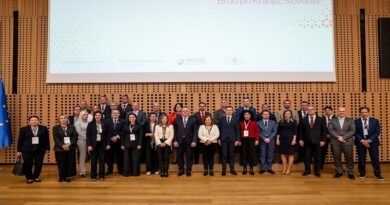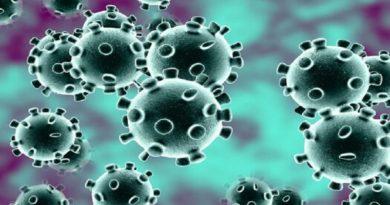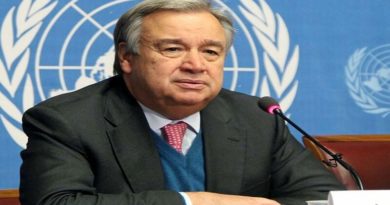UNEP, World Alliance select three Nigerians to attend Thailand meeting on ending dental amalgam
Three Nigerians representing the government, academia and Non-government Organisation have been selected to participate in the Global Workshop on Ending Dental Amalgam Use in Children that will take place in Bangkok, Thailand from Monday May 14 to 15, 2018.
The Nigeria delegate/team is to be represented by Mr. Charles Ikeah, Director of Pollution Control and Environmental Health of the Federal Ministry of Environment; Prof. Godwin Arotiba, immediate past Dean, Faculty of Dentistry, Lagos University Teaching Hospital (LUTH) and Dr Leslie Adogame, Executive Director, SRADev Nigeria (focal point NGO).
The meeting, taking place in the Thailand capital city, Bangkok and aimed towards promoting the Phase-Down Measures under the Minamata Convention on Mercury will draw participants from other African countries including Zambia, Tunisia, Mauritius and Cote I’dvoire.
The global workshop is organized by the World Alliance for Mercury-Free Dentistry in association with UN Environment. The goal of this workshop is to assist countries in ending amalgam use in children as well as to promote the phase down measures as an integrated approach to the implementation of the Minamata Convention’s requirement to phase down amalgam use before the 2nd session of the Conference of the Parties (COP2) in November 2018.
According to the organisers, the report of the global meeting is envisaged as information for participants at COP2.
It would be recalled that Nigeria, on February 1st, this year submitted her instrument of ratification for the Minamata Convention on Mercury, a global Convention that became legally binding on the 128 countries that signed it on August 16, 2017 after about 54 countries that signed the Convention ratified it.
Executive Director, Sustainable Research and Action for Development (SRADev Nigeria), the Focal NGO for World Alliance for Mercury-free Dentistry Nigeria, Dr. Leslie Adogame in a statement at the weekend made available to Ecogreen News Online said the Nigerian delegates will join other five African countries to take the giant step to commit to end amalgam for children across Africa and throughout the world.
Adogame said, “In Bangkok this month, Nigerian delegates will historically join other 5 African countries (Zambia, Tunisia, Tanzania, Mauritius and Côte d’Ivoire) to take the giant step to commit to end amalgam for children across Africa and throughout the world”.
In a letter signed by Jacob Duer, Chief of Chemicals and Health Branch of UN Environment, states that delegates to the meeting have been “carefully selected to ensure a diversity of experiences and perspectives”. Adding that sharing experiences and strategies to phase out amalgam for children and phase down amalgam use generally will provide an important basis for decision-making for each country at COP2 and beyond.
Expected workshop participants are experts drawn from countries, include government representatives, civil society, dentists/dental academicians, dental manufacturers, and intergovernmental organisations like UN Environment and WHO, all of whom will contribute to presentations and discussions on amalgam’s environmental impact; mercury-free dental materials available for children; case studies from countries and other entities that have ended amalgam use in children; and strategies that can be tailored to each country’s needs (such as laws and regulations, dental school curricula updates, modifying insurance and government programs, and encouraging health promotion programs that can increase longevity of teeth by preventing dental caries and utilizing minimally-invasive mercury-free fillings).
Dominique Bally of the African Center for Environmental Health based in Côte d’Ivoire, said, “To donate, sell, or otherwise bring amalgam to Africa is not helping the people of our region – it is dumping a neurotoxin into our environment and our bodies. Africans are tired to see their continent being seen as the world dumping site”.
Charlie Brown, Attorney & President of the World Alliance for Mercury-Free Dentistry, an organization which is spearheading the campaign, has made a clarion call on African, Asian and other global delegates attending the meeting: “Please do as the European Union has done: phase out amalgam for children now, for one simple reason: The children of your nation are equally important as the children of Europe.”.
Nigeria has been making steady progress towards phase-down on dental amalgam, a milestone towards making dental amalgam history in Nigeria and particularly in Edo State, Southern Nigeria, was achieved on Tuesday October 31st, 2017 as stakeholders including government officials, dental practitioners, dental students and surgery technicians, media and civil society groups among others resolved to end dental amalgam use for children under 16, pregnant and breast feeding women in Edo State by July 1st, this year
Other recommendations contained in the communiqué issued at the end of the meeting are “In compliance with the provisions of the Minamata Convention, government should initiate a coordinated multi-sectoral approach for an effective phase down of use of dental amalgam in Nigeria.
“Updating dental schools training curriculum to emphasize mercury-free dentistry and implementation of a phase down work plan, this must also include legislative review and development of guidelines, gathering baseline data and developing the national overview.
“Initiation of demonstration projects and application of best available technology and environmental practice in the management of dental amalgam; Promotion of alternatives/transition to alternatives by a concession for imported alternative restorative materials and engaging the public and media as well as other stakeholders in awareness creation on the health impacts of mercury in dental amalgam and the need for prevention of caries.”
A milestone for entry into force of the Minamata Convention on Mercury was reached on May 18, 2017 when the European Union and seven of its countries including Bulgaria, Denmark, Hungray, Malta, Netherlands, Romania and Sweden on May 18 deposited their instrument of ratification bringing the total ratifications to 51.
Consequently, the Minamata Convention on Mercury enters into force on August 16, 2017.
The Convention is a global treaty that seeks to protect human health and the environment from the adverse effects of mercury.
It was agreed at the fifth session of the Intergovernmental Negotiating Committee on mercury in Geneva, Switzerland on the morning of Saturday, January 19, 2013 and adopted later that year on 10 October 2013 at a Diplomatic Conference (Conference of Plenipotentiaries), held in Kumamoto, Japan.
The Convention draws attention to a global and ubiquitous metal that, while naturally occurring, has broad uses in everyday objects and is released to the atmosphere, soil and water from a variety of sources. Controlling the anthropogenic releases of mercury throughout its lifecycle has been a key factor in shaping the obligations under the Convention.
Major highlights of the Minamata Convention include a ban on new mercury mines, the phase-out of existing ones, the phase out and phase down of mercury use in a number of products and processes, control measures on emissions to air and on releases to land and water, and the regulation of the informal sector of artisanal and small-scale gold mining. The Convention also addresses interim storage of mercury and its disposal once it becomes waste, sites contaminated by mercury as well as health issues.



